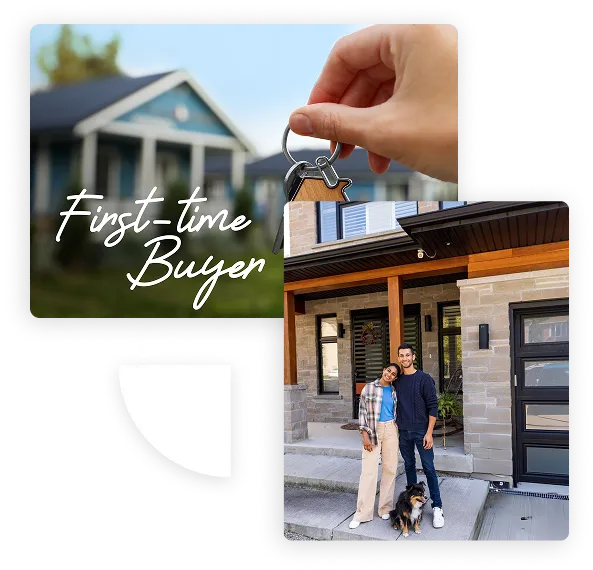Simplifying Homeownership One Step at a Time
As your dedicated mortgage broker, I’m here to make your homeownership dreams achievable. From securing the best rates to offering advice tailored to your financial situation, I’ll be with you every step of the way.

First-Time Home Buyer
Purchasing your first home is a big milestone, and it can be overwhelming. I’ll guide you through every step—from understanding down payment options to finding mortgage programs that help reduce costs. With my expertise, you’ll feel confident and empowered in making the right decisions for your future.
Tailored mortgage options for first-time buyers
Help navigating government incentives, like First-Time Home Buyer's programs
Advice on down payment assistance programs
Easy-to-understand mortgage pre-approval process
Mortgage Refinance
Refinancing can help you take advantage of better interest rates or free up equity for home improvements, debt consolidation, or other financial goals. Together, we’ll explore your options and select the best refinancing strategy that aligns with your objectives.
Lower your monthly payments with better rates
Access home equity for renovations or personal needs
Modify mortgage terms to better suit your financial goals
Review government incentives and rebates


Mortgage Renewal
Is your mortgage up for renewal? It’s the perfect time to reassess your mortgage needs and ensure you’re still getting the best deal. I’ll help you explore your options, whether it’s locking in a competitive rate, adjusting your mortgage term, or consolidating debt.
Unlock better rates when your mortgage term is up
Refinance or consolidate your debt at favorable terms
Review available options to ensure you’re maximizing your savings
Expert advice on selecting the right lender for your needs
Ready to Take the Next Step?
Let’s talk about your mortgage options and create a strategy that works for you. Book a free consultation today, and let’s make your homeownership dreams a reality!
Frequently Asked Questions
What is a pre-qualification?
Pre-qualification is an informal process where we assess your financial situation to determine how much you could potentially borrow. It gives you an idea of your budget when shopping for a home.
What is a pre-approval?
A pre-approval is a more detailed process where the lender reviews your finances, including your credit, income, and debt. This provides you with a firm loan amount and interest rate, giving you a stronger position when making an offer on a home.
What is an approval?
Approval is when a lender formally agrees to lend you the money for your mortgage based on your full application, credit report, and verification of your income and assets.
How much do I need for a down payment?
The required down payment depends on the price of the home and the type of mortgage. Typically, first-time homebuyers need a minimum of 5% down. If you’re not able to afford the down payment, there may be programs available to help.
What if I don't qualify for the home I want?
If you don’t qualify for the home you want, I can help you explore other options, including finding a different mortgage solution, increasing your down payment, or working on improving your credit score.
What is a co-signer?
A co-signer is someone who agrees to take on the financial responsibility of the mortgage if you are unable to make the payments. A co-signer is typically a family member with good credit.
What is a guarantor?
A guarantor is similar to a co-signer but typically assumes responsibility for the loan if you default. Unlike a co-signer, a guarantor’s liability is more about ensuring the loan is repaid in the event of financial difficulty.
What is Default Insurance?
Default insurance is mortgage insurance that protects lenders in case you default on your mortgage. It is typically required if your down payment is less than 20% of the home’s purchase price.
What’s the difference between a pre-approval and a pre-qualification?
A pre-qualification is a basic assessment based on the information you provide, giving you a rough idea of how much you may be able to borrow. A pre-approval, on the other hand, involves a more thorough review of your finances, credit, and income, which gives you a more accurate and reliable figure.
How long does the mortgage process take?
The mortgage process typically takes 3-4 weeks from application to approval. However, this can vary depending on the type of mortgage, the complexity of your financial situation, and whether any additional documentation is required.

